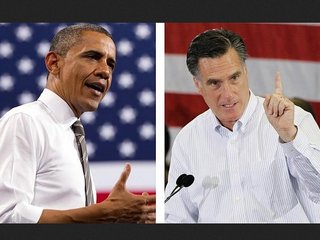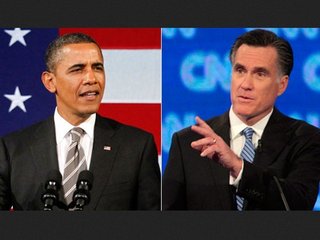
Pew: Most politically active turn to social networks
Democrats are more likely than Republicans to say social networking sites are important

Everyone has that obnoxiously loud, pretentiously political friend who seems to see Facebook as a soapbox for their repetitive platitudes. This friend is even worse when they espouse political beliefs that don’t jibe with yours. And the only thing worse than reading this blowhard friend’s political posts is reading the comments from their friends who agree with them by saying things like “liberals refuse to open their eyes and see that Osama—I mean ‘Obama’ ; )—is in league with the Taliban” and “conservatives want to take us back to the ‘50s when women stayed home and cleaned and had babies all the time.” (I personally think that last one is true—which I think makes ME that obnoxious political friend on Facebook.)
How do you deal with these people? You block them, or you unfriend them. But then does that mean that social media users are simply creating their own utopian echo chambers where they never have to hear an opposing voice? That’s not healthy either.
But a report released Tuesday by the Pew Research Center’s Internet & American Life Project finds that fully 25% of social network users say that they have become more active in a political issue after discussing it or reading about it on a social networking site. A surprising 16% said that they actually changed their views about a political issue after reading about it online.
Social media—particularly social networking sites like Twitter and Facebook—represent a unique crossroads in global political discourse. You can watch FoxNews or The Daily Show and get the political leanings you want, but chances are, you don’t share the exact same political views with each and every one of your friends. Indeed, a full 38% of survey respondents said that they discovered through social networking sites that some of their friends held different political views than what they thought they were.
What does this mean? This means that people growing up with social media as an ever present reality are being forced to learn how to have civil political discussions—or at least to be tolerant and respectful of their friends who have opposing political beliefs.
Interestingly, left-leaning social media users are more likely than right-leaning users to say the sites are important for staying up-to-date on political issues and getting involved in political activities. Nearly half (48%)of all respondents who identified as Democrats said the sites are important for keeping up with political news, and 35% said they’re important for recruiting people to get involved in causes, compared with 34% and 25% of Republicans respectively.
Additionally, Democrats are more likely than Republicans to say that social networking sites have led them to become more active in political issues (33% and 24%, respectively).
Surprisingly, the few survey respondents who identified themselves as “very conservative” were among the most enthusiastic social network users, believing the sites to be very important for getting political news and recruiting people.
“Those who are really active in discussing and participating in politics use social networking sites pretty eagerly and report that their discussions and debates on the sites affect them,” said Lee Rainie, Director of the Pew Internet Project and the report’s co-author, in a statement. “However, for most of those who use the sites, political material is just a small portion of what they post and what they read. And the impact of their use of the sites is modest, at best.”
So if the most liberal and the most conservative Internet users are using social networking sites as their political sounding boards, how are they interacting on those sites? How have they not caused Facebook to spontaneously combust like a lab experiment gone awry? A previous Pew study found that only 25% of social networking site users say that they agree with all or most of their friends’ political posts. How do they all deal? Some 18% said they have blocked or even unfriended someone because of a political post, but the vast majority (66%) simply practice that time-old strategy of ignoring it.
Image source: millennialceo.com
Related News


Pew releases study on politics and mobile

